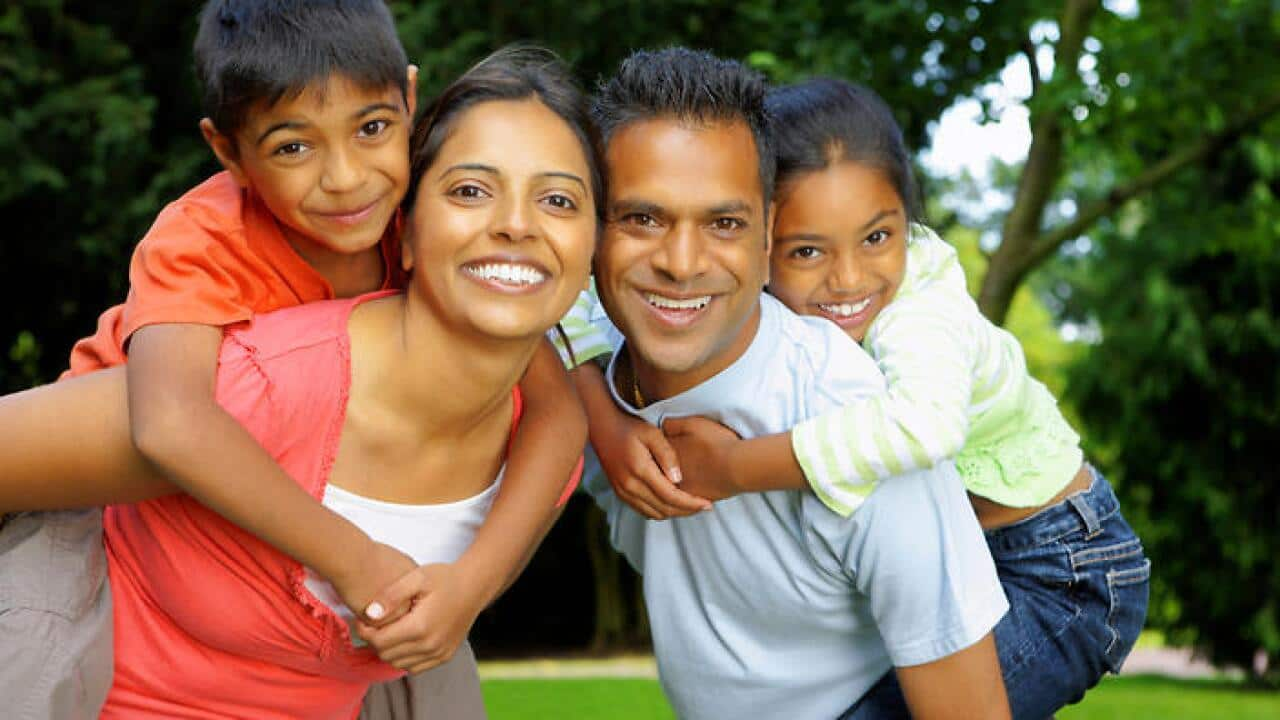New figures released by the ABS reveal the Indian population in Australia has grown to 660,000 in 2019. This is an 11 per cent increase compared to 592,000 Indians living in Australia in 2018.
People born in India now comprise 2.6 per cent of the Australian population and the median age of an Indian migrant is revealed to be 34 years, same as those born in Australia, the new data states.

Source: ABS
Where do Indians live in Australia?
Most people who have migrated from India live on the eastern coast of the country.
Victoria had the highest number of migrants from India with more than 182,000 residing in the state, followed closely by New South Wales which was home to 153,000 Indians, as of June 2016.
Here's where Indians live in Australia:
Victoria: 182,800
NSW: 153,800
Western Australia: 53,400
Queensland: 53,100
South Australia: 29,000
ACT: 10,900
Northern Territory: 4,200
Tasmania: 2,100
(According to June 2016 Census)
ALSO ON SBS HINDI:

Biggest source of migrants revealed

Indians at Australia Day Parade in Melbourne Source: SBS Hindi
The total permanent Migration Program outcome for 2018-19 was 160,323 places, of which 33,611 places went to Indian citizens.
The trend has also resulted in Indian migrants being the top source of new Australian citizens. Over 28,000 Indian nationals became Australian citizens last year.
The number of Indian students studying in Australia too increased exponentially. Latest from the Australian government reveals there were 94,681 Indians studying in Australian universities and colleges in June 2019.
Indian languages are widely spoken in Australia
The 2016 Census revealed that along with population, Indian languages too had grown in Australia.
Hindi came out as the top Indian language spoken at home in Australia with 159,652 speakers, with Punjabi a close second at 132,496.
Hindi and Punjabi have made it to the top ten languages spoken in Australia.
Find out how many people in your suburb speak Hindi
The other languages which have seen a big jump are Tamil (73,161), Bengali (54,566), Malayalam (53,206), Gujarati (52,888), Telugu (34,435), Marathi (13,055) and Kannada (9701).
Other languages recorded in the 2016 census were Konkani language (2,416), Kashmiri language (215), Oriya (721) and Sindhi spoken by 1,592 speakers across Australia. More than 7.5 million people living in Australia in 2019 were born overseas, with those born in England continuing to be the largest group.
More than 7.5 million people living in Australia in 2019 were born overseas, with those born in England continuing to be the largest group.

Indian fans react during the second T20 International match between Australia and India at the MCG in Melbourne, Friday, Jan. 29, 2016. Source: AAP Image/David Crosling
ABS Director of Migration Statistics Jenny Dobak said new figures showed that in 2019 just under 30 per cent of Australia's resident population was born overseas.
"People born in England continued to be the largest group of overseas-born residents, accounting for 986,000 people," Ms Dobak said, adding Sri Lanka had replaced Scotland in the top ten.
"People born in Sri Lanka represented the tenth-largest group of overseas-born residents, accounting for 140,000 people, and replacing Scotland in the top 10," she added.
In the year to 30 June 2019, 538,000 people arrived to live in Australia, while 298,000 people left Australia to live overseas.
Of those migrant arrivals, 64 per cent were temporary visa holders including 32 per cent who were international students.

